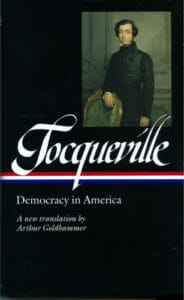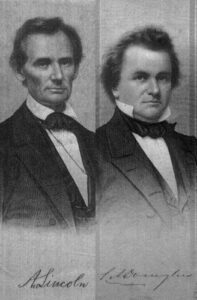Being all equal and independent, no one ought to harm another in his life, health, liberty, or possessions. (Chapter 2, Section 6)
John Locke
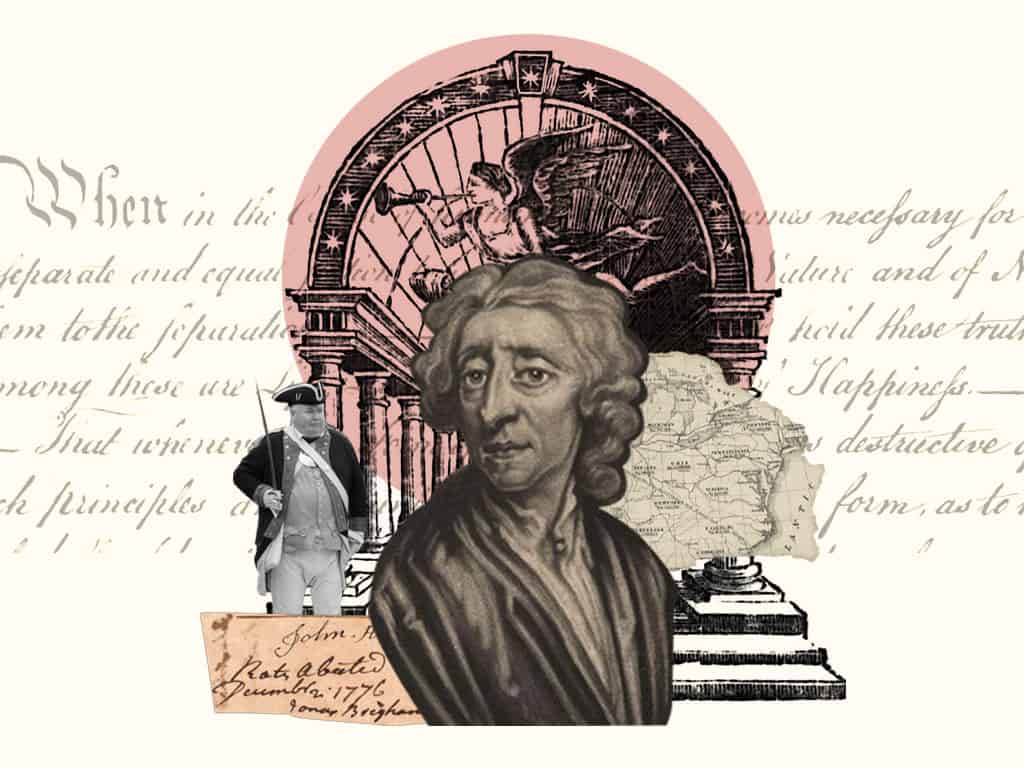
The Second Treatise of Government
John Locke
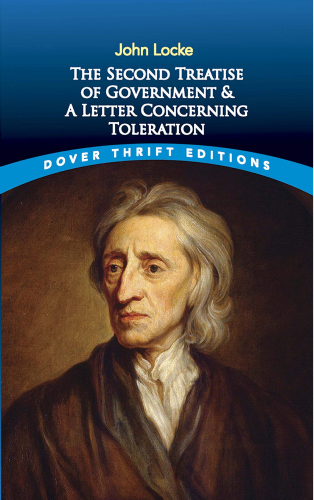
John Locke, The Second Treatise of Government (Mineola, New York: Dover Publications, 2002). ISBN-13: 978-0486424644
John Locke’s "The Second Treatise of Government" presents the argument that people hold supreme power.
In a state of nature, people live free and equally based in accordance with a series of natural laws where issues of right and wrong can be deduced through reason and a close observation of human nature. Locke maintains that individuals can enforce natural law on those people who infringe on their rights. As society develops, the economy expands. People initially grow enough food to subsist; now, they have enough food to trade with others. This leads to the development of a common currency. As Locke points out, the growth of society underscores the need for government. People need government to protect their property and liberties. In doing so, the people enter into a social contract. They give their consent to be governed and live under a set of common laws with an executive that enforces them. In return, the government agrees to protect the people’s life, liberty, and property. However, if the government fails to protect life, liberty, and property, the contract is broken, and the people have the right to depose of the government and create a new one.
Why This Text is Transformative?
Locke’s philosophy on government helped influence the American Revolution.
John Locke’s The Second Treatise of Government represented a marked shift in political thought during the seventeenth and eighteenth centuries. At a time when the political power of many nations vested in a monarch or emperor, The Second Treatise of Government placed power in the hands of the people. Furthermore, Locke’s The Second Treatise of Government demonstrates that the people are deserving of the power that they receive in a state of nature. When a government violates life, liberty, and property, the people can depose of the existing government and create a new one. This highlights Locke’s belief that people can improve with experience, as they can establish a better government than the one before. Locke’s philosophy on government helped influence the American Revolution. After all, the structure Thomas Jefferson used to write the Declaration of Independence followed the argument presented by Locke. Jefferson highlighted the colonists’ right to “life, liberty, and the pursuit of happiness” and then proceeded to outline how Great Britain violated it. As a result, the colonies were justified in becoming independent.
A Focused Selection
Study Questions
Three, 75-minute sessions can be used to examine John Locke’s The Second Treatise of Government. In discussing this work, students can examine the state of nature, natural law, property, human nature, and the establishment and dissolution of government.
1) Locke focuses on a “state of nature.” What is Locke’s “state of nature” like? How is Locke’s “state of nature” similar and/or different from the that of Thomas Hobbs in his work Leviathan?
2) What does Locke mean by “law of nature”? Who enforces this “law of nature” prior to people entering into a social contract to be governed?
3) Locke places considerable value on property. Why is property important to Locke? Are there any limits that can be placed on property? How does Locke explain the inequalities of property that exist in society?
4) Why do people have the right to dissolve a government? What does this ability reveal about Locke’s view on human nature? How has Locke’s political philosophy shaped today’s society?
Building Bridges
John Locke’s The Second Treatise of Government can be complimented with Alexis de Tocqueville’s Democracy in America and Lincoln-Douglas Debate 7. Locke’s philosophy placed power in the hands of the people, offering a political philosophy that was being applied in the New England colonies. This matches well with Tocqueville’s individual sovereignty that provided the basis for American democracy. Furthermore, the connections between Locke and Tocqueville can open a discussion on issues of human nature. The idea that, on some level, Locke and Tocqueville can improve with experience and create a government that works for them. In the United States’ case, individual sovereignty allowed democracy to prosper. Tocqueville, however, noted that the issue of slavery presented a threat to American democracy. Here, Lincoln-Douglas Debate 7 can serve as a counterpoint to Locke. For example, popular sovereignty became used to decide whether new American territories would become a slave state or free state, leaving the decision up to the people. This created a volatile atmosphere in places like Kansas that furthered the sectional divide that existed in the United States during the 1850s.
Supplemental Resources
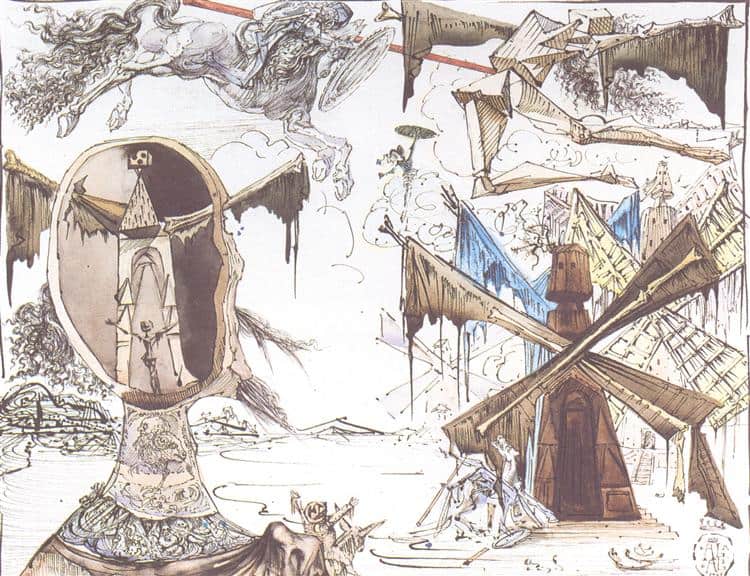
Don Quixote and the Windmills, 1945 - Salvador Dali - WikiArt.org
Don Quixote has been an inspiration for many visual artists. Spanish surrealist Salvador Dali returned to the novel multiple times throughout his long career, creating sketches, paintings, and sculptures of Don Quixote and Sancho, depicting important episodes in the book. A pairing of an episode with one of Dali’s works can lead to a stimulating discussion.
What details do students notice? What do his artistic choices suggest about his interpretation of the characters? To the extent that students are familiar with the story of Don Quixote, it is likely to be as it is filtered through the musical The Man of La Mancha. The musical has its own merits, and is framed by the interesting device of placing Cervantes on stage as a narrator, but of course it is impossible for it to capture much of the complexity of the book – and it alters the ending dramatically. Students may find it interesting to compare the two endings.
Text Mapping
Discipline Mapping
Political Science/Government
History
Philosophy & Religion
Page Contributor


